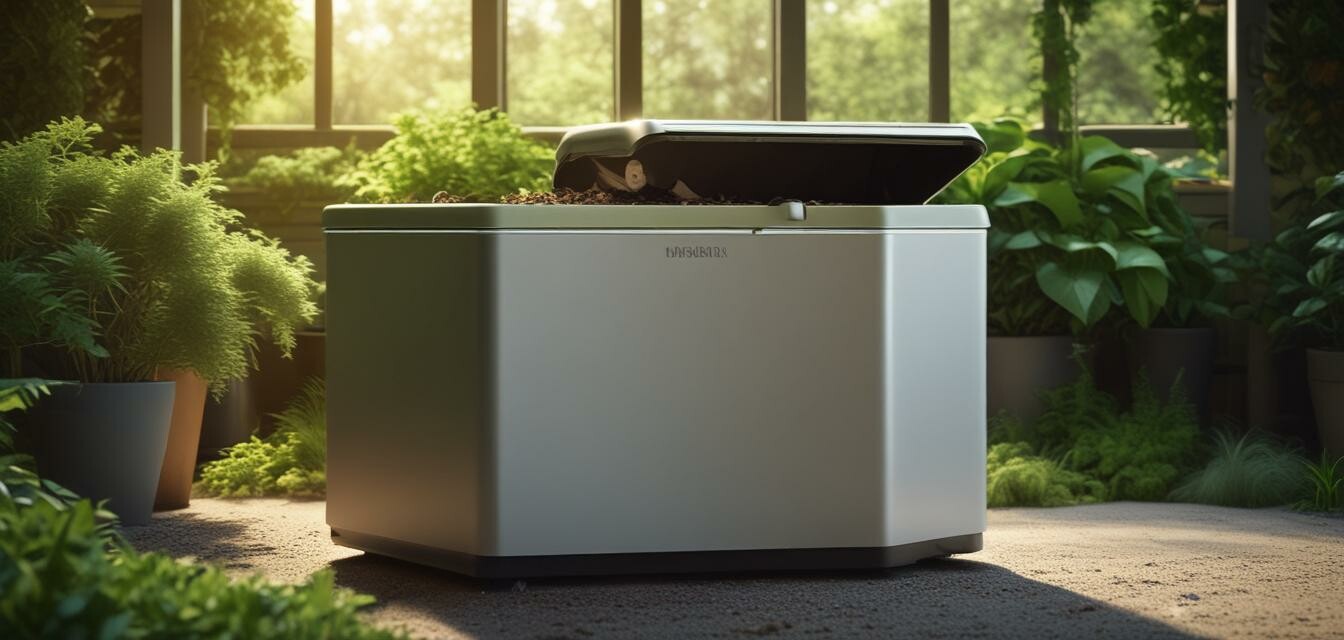
Composting in the Age of Smart Technology
- Innovative technology enhances composting methods.
- Smart composters offer convenience and efficiency.
- Data-driven solutions are improving composting outcomes.
- The eco-friendly trends are accelerating sustainable practices.
- Community initiatives are furthering composting technology adoption.
Composting has long been a cornerstone of sustainable living, but with the advent of smart technology, it is undergoing a transformation like never before. From smart composters that take the guesswork out of the composting process to community initiatives that leverage technology, the landscape is changing rapidly. In this article, we explore how innovative technology is reshaping composting methods and enhancing user convenience.
The rise of smart composters
Smart composters have made composting more accessible and efficient for households around the world. No longer are composting enthusiasts limited to the traditional methods that require significant manual effort and extensive knowledge of the process. Let’s take a closer look at how these smart devices are changing the game.
How smart composters work
Smart composters utilize various technologies such as sensors, automated aeration, and real-time monitoring to simplify the composting process. Below is a table summarizing the key features of smart composters:
| Feature | Description |
|---|---|
| Automated Monitoring | Tracks temperature, moisture levels, and other conditions to optimize composting. |
| Remote Control | Allows users to adjust settings and monitor composting processes via a mobile app. |
| Odor Control | Includes built-in filtration systems to prevent unpleasant smells. |
| Efficient Design | Uses advanced methods to speed up decomposition, reducing the time needed to create compost. |
Benefits of using smart composters
The benefits of opting for smart composters include:
- Less effort required compared to traditional composting methods.
- More effective composting due to real-time monitoring and adjustments.
- Convenience through remote controls and notifications.
- Improved user participation in sustainable practices.
How technology is changing composting materials
The materials used in composting are also evolving. Innovative biodegradable materials are now making their way into compost bins, thanks to research and development in eco-friendly solutions. Here are a few trends to note:
- Biodegradable plastics: More brands are offering compostable packaging made from plant materials.
- Food waste recycling: Restaurants and grocery stores are partnering to convert organic waste into compost materials.
- New composting additives: Products that enhance microbial activity and speed up decomposition are being introduced.
Community initiatives and technology
Beyond individual use, technology is playing a significant role in community composting initiatives. Communities are utilizing tech solutions to enhance their composting efforts by:
| Initiative | Technological Support | Community Benefits |
|---|---|---|
| Neighborhood Composting Programs | Apps for tracking participation and materials collected. | Reduced waste in landfills, fostered community spirit. |
| Educational Workshops | Online platforms for webinars and virtual classes. | Increased awareness, improved composting literacy. |
| Food Waste Collection Services | Smart bins equipped with sensors to monitor fill levels. | Improved efficiency and reduced collection costs. |
The impact of composting technology on sustainability
The integration of technology in composting is not just about convenience; it's also about enhancing sustainability. As more households and communities adapt to these innovations, we can expect the following positive outcomes:
- Increased compost production helps enrich soil and promotes sustainable agriculture.
- Reduction in greenhouse gas emissions by diverting organic materials from landfills.
- Enhanced community engagement in sustainable practices leads to improved local ecosystems.
Tips for getting started with smart composting
- Research different smart composter models to find one that suits your needs.
- Start small—try composting kitchen scraps before moving on to more extensive composting efforts.
- Stay informed about new composting materials and practices by following trends in the industry.
- Connect with local composting groups or community initiatives to share resources and knowledge.
Conclusion
As we move further into the age of smart technology, composting is evolving into a more efficient and enjoyable experience. The commitment to sustainable practices is strengthened through innovative devices and community initiatives, making it easier for everyone to participate in protecting our planet. Stay engaged with the latest trends by visiting our Composting Trends section, and discover the ongoing transformations shaping the future of composting.
Pros
- Convenient and user-friendly operations.
- Real-time monitoring for optimal compost conditions.
- Increased community involvement in sustainable practices.
- Reduction in waste and environmental impact.
Cons
- Initial cost of smart composters may be high.
- Dependence on technology may deter traditional composters.
- Requires access to technology and internet connectivity.